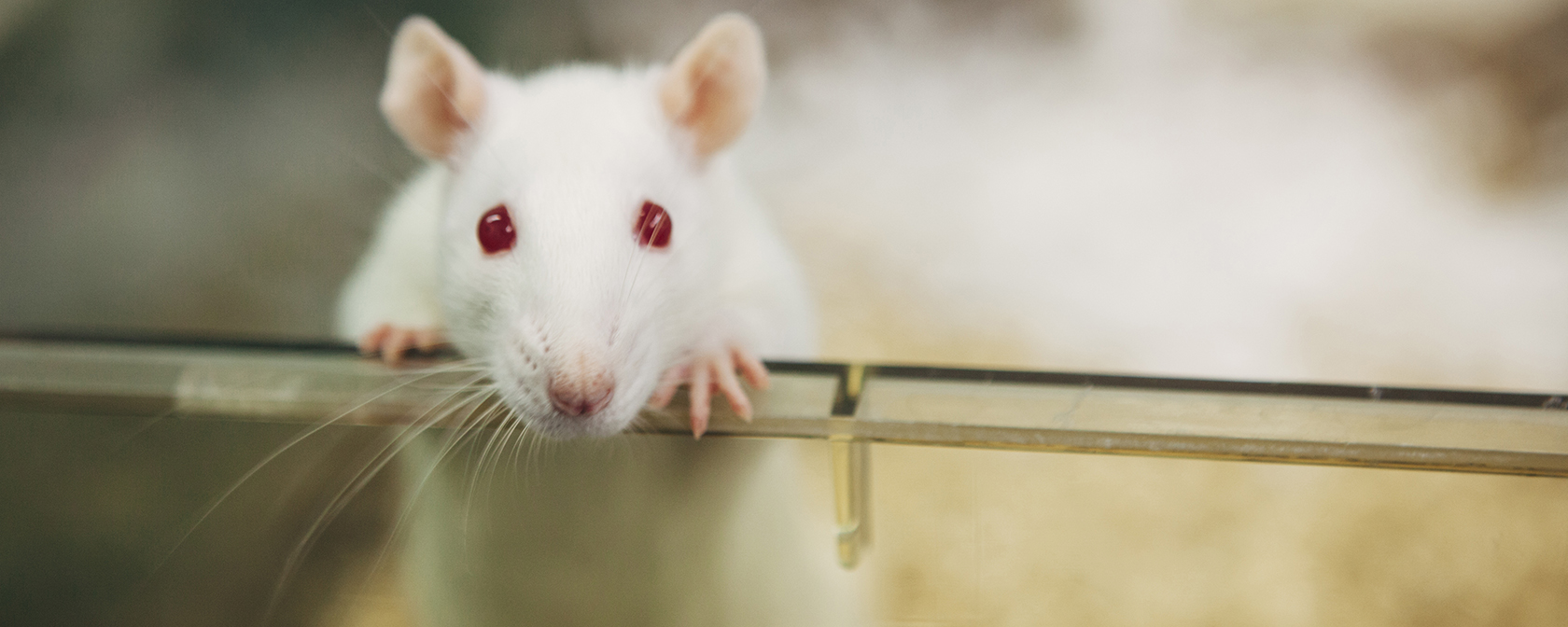By Sara Amundson and Kitty Block
There is simply no reason to force guinea pigs, rabbits, mice and rats to undergo painful new chemical tests for cosmetic products like shampoo and mascara when better science allows for non-animal testing methods that are more relevant to human safety. That’s why a ban on animal testing for cosmetics is a worldwide priority for us, and we’re making remarkable progress toward that goal. So far, 2021 has already been a momentous year, as Virginia, Maryland, Maine, Hawaii and New Jersey have passed laws to prohibit the sale of animal-tested cosmetics. And we rejoiced when Mexico became the first country in North America to ban the use of animals to test cosmetics.
Today, the Humane Cosmetics Act (H.R. 6207/S. 3357) was reintroduced in Congress. This federal legislation would end the use of rabbits, mice, rats and guinea pigs to test ingredients in products such as shampoo, mascara and aftershave, as well as the products themselves, in the U.S. Not only that, but the Humane Cosmetics Act would also prohibit the import and sale of cosmetics that have been tested on animals anywhere else in the world. The U.S. is one of the world’s largest cosmetics markets, and if the Humane Cosmetics Act becomes law, it would have far-reaching effects, which is why we’ve so strongly championed it. While many people may think that new animal testing for cosmetic products or ingredients ended decades ago, it’s estimated that hundreds of thousands of animals are still used each year worldwide.
The cosmetics industry itself largely supports an end to animal testing for its products, and we’ve worked closely with the Personal Care Products Council, the trade organization representing 90% of the U.S. cosmetics industry, on the Humane Cosmetics Act. The legislation also has the endorsement of over 350 individual companies including global beauty giants Unilever and Procter & Gamble, partners in our #BeCrueltyFree campaign to ban animal testing for cosmetics in all major global beauty markets by 2023.
Eight states already have laws ending the sale of cosmetics that have been newly tested on animals. Maine, New Jersey, Maryland, Virginia and Hawaii are the latest to join California, Nevada and Illinois in doing so. At the international level, Humane Society International, its global partners and others have persuaded 41 countries to pass laws to end or limit cosmetics animal testing. The list includes India, New Zealand, South Korea, Guatemala, Australia, Mexico and all countries in the European Union.
The industry stands to benefit from the clarity and guidance that will come with passage of the Humane Cosmetics Act. Cosmetics companies can continue to formulate new and innovative products using thousands of ingredients with a long history of safe use and do not require additional tests. For new ingredients, advanced non-animal tests are the way to go. For example, reconstructed human skin or cornea models can replace the use of rabbits in painful tests that drip chemicals into the eyes or smear them onto their shaved skin to be observed for signs of irritation. And there are new and innovative testing options emerging every day.
We are in a new era in cosmetics testing—one that relies on rapid, efficient, affordable and accurate methods that better meet our needs. Not only that, we’re on the cusp of a new era in human-animal relations, one in which we acknowledge our moral obligation to avoid using them to the greatest possible extent. Passing the Humane Cosmetics Act would be remarkable and meaningful progress toward this more humane future.
Support from the cosmetics industry and solid bipartisan sponsorship in Congress puts us in a strong position to win approval. Our thanks to Sens. Cory Booker, D-N.J., Robert Portman, R-Ohio, John Hickenlooper, D-Colo., Susan Collins, R-Maine, and Jacky Rosen, D-Nev., and Reps. Don Beyer, D-Va., Vern Buchanan, R-Fla., Paul Tonko, D-N.Y., Ken Calvert, R-Calif., and Tony Cárdenas, D-Calif., for introducing this important bill. Their compassionate instincts, their clear-eyed understanding that we can accurately assess cosmetics safety without animals, and their efforts to build both political and corporate support for the Humane Cosmetics Act are tremendous assets in the fight to win this long-sought animal protection goal.
Kitty Block is President and CEO of the Humane Society of the United States.




